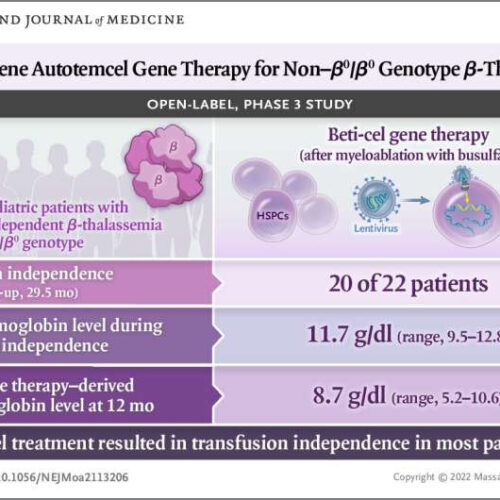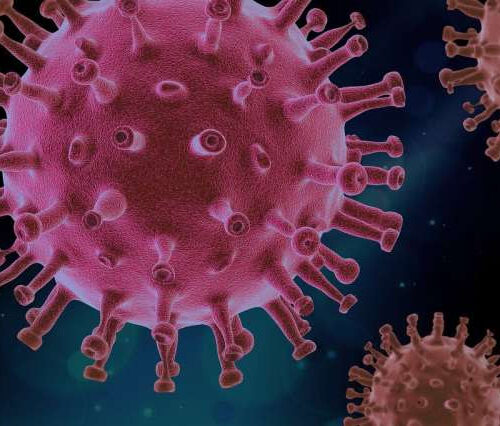February 6, 2022 6:01 AM ET LESLEY MCCLURG Eleanor Cole, Ph.D., demonstrates the treatment on trial participant Deirdre Lehman in May 2019 at the Stanford Brain Stimulation Lab. Steve Fisch for Stanford Medicine After 40 years of fighting debilitating depression, Emma was on the brink. “I was suicidal,” said Emma, a 59-year-old Bay Area resident....
Smell Loss with COVID-19 Begins in the Nuclear Hearts of the Nose’s Sensory Cells
The loss of smell has been a signature symptom for many people infected by SARS-CoV-2, the virus that causes COVID-19. A mug of coffee comes off as hot water. Chocolate, suddenly without its alluring aroma, loses its appeal. For most, these olfactory deficits, referred to as anosmia, last for weeks or months, but for others...
Research: Can Nutrient Supplements Prevent Glaucoma?
One of the most effective treatments for glaucoma, latanoprost, was developed by Columbia ophthalmology researcher Laszlo Bito, PhD, who in the 70s and 80s conducted the key studies that led to the drug’s approval in 1996. Since then, latanoprost has been the first-line treatment for reducing pressure inside the eye and preventing retinal damage and...
Key growth factor protects gut from IBD
A growth factor protein produced by rare immune cells in the intestine can protect against the effects of inflammatory bowel disease (IBD), according to a new discovery from Weill Cornell Medicine researchers. In their study, published in Nature Immunology, the researchers found that the growth factor, HB-EGF, is produced in response to gut inflammation by...
Ally and enemy? Scientists explore immune cell suspect in Alzheimer’s disease
by Bill Hathaway, Yale University Fig. 1: Characterization of microglia-like cells in mhCOs. a Schematic for generating mhCOs. 10% of PU.1-infected hESCs were mixed with 90% parental HES3 hESCs, and PU.1 priming and full induction were performed on day 2 and 18, respectively. b Expression of microglia-related genes from control hCOs and mhCOs (30-day and...
Researchers identify new target for treatment of aggressive childhood brain tumors
by Nora Bradford, Broad Institute of MIT and Harvard MRI of a diffuse midline glioma. Credit: Dr. Jeremy Jones, radiopaedia.org. From the case rID: 68487 More children die of brain tumors than any other type of cancer. Diffuse midline gliomas (DMGs) are a particularly deadly kind, and are difficult to treat with drugs or surgery because...
Brain shortcuts may be partially to blame for vaccine and mask non-compliance
by Colleen Sharkey, University of Notre Dame Credit: Pixabay/CC0 Public Domain If close friends and family members who contracted COVID-19 had mild cases and recovered quickly, or if they had an adverse reaction to the vaccine, your brain might convince you that you’d have the same experience. This phenomenon, known as “availability heuristic,” is one...
Gene therapy promotes transfusion independence for severe beta-thalassemia
by Melissa Rohman, Northwestern University Graphical abstract. Credit: DOI: 10.1056/NEJMoa2113206 A novel gene therapy promoted transfusion independence in more than 90 percent of adult and pediatric patients with transfusion-dependent beta-thalassemia, according to a recent clinical trial published in the New England Journal of Medicine. The therapy represents a potentially curative treatment option for patients who must...
Those at highest risk for severe COVID-19 often least likely to get monoclonal antibodies
by Harvard T.H. Chan School of Public Health Credit: Pixabay/CC0 Public Domain People over age 65 at the highest risk for severe COVID-19 have often been the least likely to receive monoclonal antibodies (mAbs)—a highly effective treatment for the disease—both across and within U.S. states, according to new research co-authored by researchers from Harvard T.H....
Researchers discover two treatments that induce peanut allergy remission in children
by Murdoch Children’s Research Institute Researchers have discovered two peanut allergy treatments for children that are both highly effective at inducing remission. Credit: Kamran Aydinov Researchers have discovered two peanut allergy treatments for children that are both highly effective at inducing remission. The research, led by the Murdoch Children’s Research Institute (MCRI), found the treatments—a...







